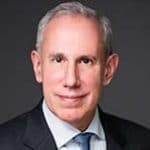In a way, the debate over the viability of DeFi over the long-term is happening every day: as the values of DeFi tokens skyrocket and plunge; as new DeFi platforms are built, hacked, abandoned, and championed, the question of what it all will mean for the future remains unanswered.
However, at the Finance Magnates Virtual Summit on November 18th, the debate over the future and viability of DeFi took place in a very concrete way in a discussion moderated by Teana Baker-Taylor, the General Manager of Crypto.com’s UK division.
Baker-Taylor expertly facilitated a talk between four experts in the cryptocurrency and DeFi space: there was Lex Sokolin, Chief Marketing Officer at ConsenSys, as well as Blockchain and virtual currency attorney, Stephen D. Palley, who is a partner in the Washington DC office of Anderson Kill.

Teana Baker-Taylor, General Manager of Crypto.com’s UK division.
Also present for the discussion were Stani Kulechov, Founder and Chief Executive of Aave, and Chen Arad, the Chief Operating Officer at Solidus Labs.
All four panellists were asked the same question: “will DeFi disrupt and enable mainstream alternatives to centralized finance?”
This is an excerpt that has been edited for clarity and length. To hear the rest of this panel discussion at the Finance Magnates Virtual Summit, visit us on Youtube.
Kulechov: “Traditional Finance Is like a Black Box.”
The debate kicked off with Kulechov and Sokolin, who were described as the “pro-DeFi” team.
Kulechov said that at this moment, it is difficult to determine whether or not DeFi disrupt and enable alternatives to centralized financial systems. “In the long term, it might,” he said. “It really depends on how people will adopt the technology, or even use it.”
However, Kulechov does believe that many of DeFi’s properties are an improvement on the financial systems that most people and societies currently rely upon: “traditional finance is like a black box, or a combination of black boxes.”

Stani Kulechov, ounder and chief executive of Aave.
Practically, this means that “as a consumer, investor, or stakeholder, you cannot see what’s going on” in these traditional financial systems. “Basically, that creates a bit of a challenge in the sense that you probably don’t see what kind of markets there are, and what kind of competition there is.”
“Decentralized finance, by default, is made in such a way that you can see all of the actions there because of its immutable nature, those actions are actually real in the sense that they’re not just figures in a database that can be changed, but they’re actually values that exist in a blockchain in an immutable way.”
Additionally, “from an end-user or developer perspective,” decentralized finance allows one to “participate in the system,” Kulechov said. “You can build a financial application that could be used in the future by millions of people.”
“Anyone can create the next application in DeFi,” he continued. “And because it’s an ‘internet’, you can create applications that can act as one piece that interacts with anything on-chain.”
“I used to build Web 2 financial applications, and you didn’t have this composability,” he said.
Lex Sokolin: “We Should Be very Careful and Thoughtful about Finding Value in the Infrastructure and Then Finding Interesting Alpha in the Assets.”
Sokolin added that “it’s important to place DeFi in a broader economic perspective.”
“The first point is that fintech itself has been a sort of fifteen-year theme where $200 billion have gone into democratizing finance, and largely what’s happened is that we have a bunch of digital distribution,” a bit like “the Spotify of CDs.”
In other words, “you’re distributing ‘old stuff’ (old bank accounts traditional brokerage accounts, and so on), and there’s been no revolution in the manufacturing of financial products,” he explained.

Lex Sokolin, CMO and Global Fintech Co-Head at ConsenSys.
Therefore, “one of the core things to understand is that decentralized finance is a new chassis for manufacturing for making financial instruments across asset classes,” and for doing so “in a composable way, in a digital-native way, with digital scarcity, with transparency, with better audit [capabilities] than ever before.”
In other words, “all of the attributes that you’d want of a financial ecosystem for making the rails are actually there,” he continued.
Additionally, “we should be careful not to confuse DeFi as a financial infrastructure with the types of assets and exposures that come out of those machines: the tokens, the currencies, the derivatives, that is a separate question about what people should invest in and what they should hold.”
“We should be very careful and thoughtful about finding value in the infrastructure and then finding interesting alpha in the assets,” he continued.
Stephen D. Palley: “My Skepticism Comes from the Notion That We’re Going to Create Things That Are Truly ‘Risk-Free.’”
Stephen D. Palley, one of the DeFi 'skeptics', began his statements with the disclaimer that he is “not opposed to the development of new types of ‘machines’ for creating new types of assets, that’s interesting.”
However, he still identifies as a 'skeptic' in part because “I’ve been practicing law for a long time, and I remember in 2006 someone telling me that they had engineered the risk out of mortgages: that they had created a new kind of financial engineering that would basically democratize access to capital, and would allow everyone to have money.”

Stephen D. Palley, Partner in the Washington DC office of Anderson Kill.
“So, my skepticism comes from the notion that we’re going to create things that are truly ‘risk-free’ or that don’t just move the risk somewhere else,” he explained.
Palley also reflected on the ways that the financial system has changed over the last few centuries: “back in the mid-19th century, ‘wildcat banks’ existed all across the country. They were called that because they existed in places where there were literally tumbleweeds and wildcats walking through the streets.”
However, “the passage of the National Bank Act in the 1860s, the creation of a robust financial regulatory system, and, most recently, Dodd Frank, which was passed out of the burning embers of the 2008 financial crisis, reminded us of the need for responsible Regulation ,” he said.
Therefore, “I’m skeptical of much of what I see in the DeFi space,” Palley continued. “95 percent of it seems to me like people using magical incantations in order to create vast wealth for small numbers of people, using the name ‘decentralization’ in a perverse and perverted way.”
Of course, “it doesn’t mean that there isn’t something interesting that can come out of this,” Palley said. “I would agree with Lex and with Stani that there is something there, I don’t know what it is yet.”
Chen Arad: “It’s about Balancing the Many Merits of Decentralised Finance (and the Concept of Decentralization) with the Many Risks That It Introduces.”
Chen Arad, the other member of the 'skeptic' team, referred to himself as a 'pragmatist': “I think the same is true for Solidus Labs and a lot of other people who are working on the compliance and regulation of digital assets.”

Chen Arad, the Chief Operating Officer at Solidus Labs.
However, “I think it’s not a question of whether or not DeFi will disrupt traditional financial systems. I think it is already disrupting purely by providing an alternative and making traditional financial and government reconsider what can be improved, in that sense, the effect is already happening.”
Still, “I’m not sure whether we’ll all be paying each other crypto on decentralized platforms in ten years,” he said. “But, the value of this challenge to existing systems is already, in effect, very important.”
Chen said that the universal discussion should not necessarily be about whether we should be “for or against” DeFi, instead, “it’s about balancing the many merits of decentralized finance (and the concept of decentralization) with the many risks that it introduces.”
“You could compare decentralized markets to a car,” he said. “All of us get very excited about fast or autonomous cars, but we wouldn’t want to drive them without knowing that someone verified that we’re safe and that we can hit the brakes fast enough if we need to.”
This is an excerpt that has been edited for clarity and length. To hear the rest of this panel discussion at the Finance Magnates Virtual Summit, visit us on Youtube.






















